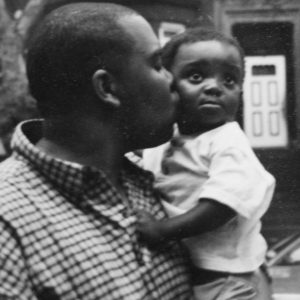 I just finished Ta-Nehisi Coates’ Between the World and Me, or should I say, it just finished me. One of those books, you see.
I just finished Ta-Nehisi Coates’ Between the World and Me, or should I say, it just finished me. One of those books, you see.
Written as a letter to his son about his experiences in a black body in America, it is both a memoir and a lesson. I suspect when one reads a memoir, one looks to see: where did we act similarly, how are we different? What human experiences do we share in common? What life lessons can I learn from this person? Coates asked me to go bigger, and higher and beyond.
This I now know – my own life experience is very much shaped by Ta-Nehisi Coates’ experience, even though I don’t have to know this. At times, I felt out of my depth and over my head. I felt like I was on the edge of grasping some central point and it slipped away again and again. I felt those things in the best of ways, like when you’re picking your way through philosophy or music or math. There are dark edges, and at the same time, light bulbs keep coming on and on and on and you know if you keep turning it over, you’ll be rewarded. Or cursed.
If you’re a student of history or a watcher of current events, none of what Coates reveals in his book is surprising. Being black in America is fraught with tension. Being white in America CAN be to strive to understand that tension, and how we address it. Or it can be to turn the channel. To close the book. To fill our minds with thoughts that skip over the violence with which our nation was born, violence born on the backs of black people. Being white can mean to pretend not to grasp the connection between yesterday and today and tomorrow. To avoid thinking too deeply about who created our systems. And how. And why.
Something about how Coates writes to his son, both intimately and intellectually, pushed me and kept pushing me. Certain things I could understand if I tried to insert my own nouns into the story, certain things I will never have to understand if I don’t keep pushing my mind go there, to stay there, to sit with it. Sit uneasy. I found it was still in me to seek distance until he writes about the murder of a friend by the police, a man not much older than my son:
Think of all the love poured into him. Think of the tuitions for Montessori and music lessons… Think of the surprise birthday parties, the day care, and the reference check on babysitters. Think of the World Book and Childcraft. Think of checks written for family photos…Think of all the embraces, all the private jokes, customs, greetings, manes, dreams all the shared knowledge and capacity of a black family injected into that vessel of flesh and bone. And think of how that vessel was taken, shattered on the concrete, and all its holy contents, all that had gone into him, sent flowing back to the earth.
Through reflection and writing, Coates searches for the answer to this question: how to be free in his black body? I now search for the answer to the question: how have I come to understand my whiteness through the lens of how I understand his blackness? Coates doesn’t offer his son any answers, but he gives him proscription. Struggle. Keep struggling. That’s where the understanding lies.
Coates admits he was not a natural student, but is a prodigious learner. He says,
The pursuit of knowing was freedom to me, the right to declare your own curiosities and follow them through all manner of books. I was made for the library, not the classroom. The classroom was a jail of other people’s interests. The library was open, unending, free. Slowly I was discovering myself.
Between the World and Me isn’t about offering hope. It’s about keeping his boy safe, and perhaps through his words, he might offer you something, too.
-Polli Kenn is the Readers' Services Coordinator at Lawrence Public Library.



Add a comment to: Between the World and Me